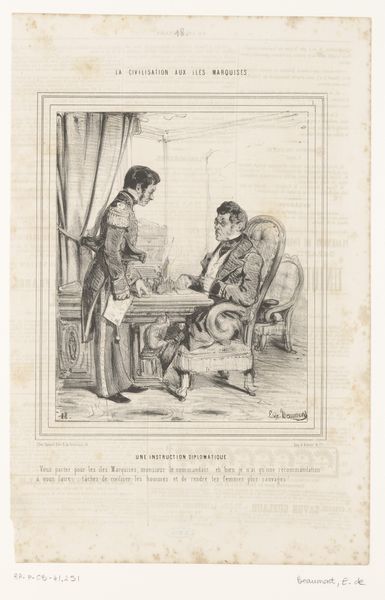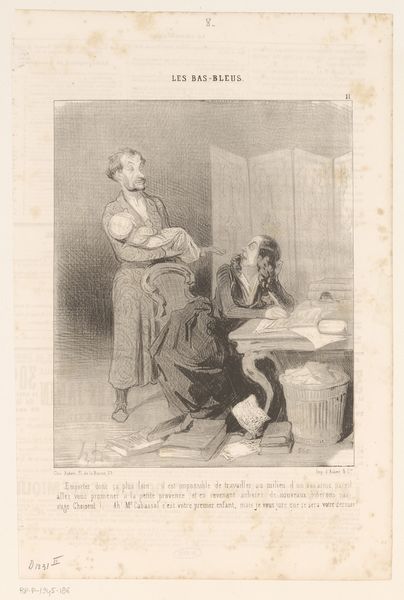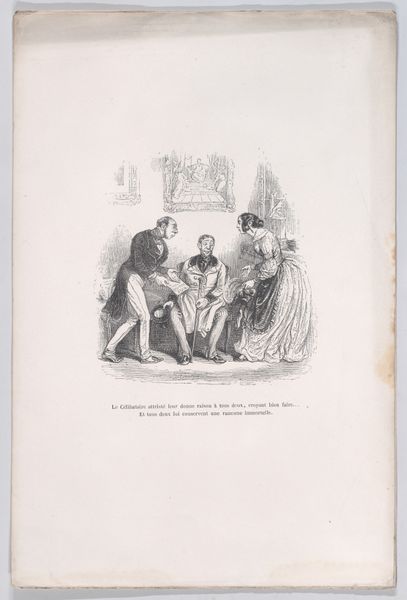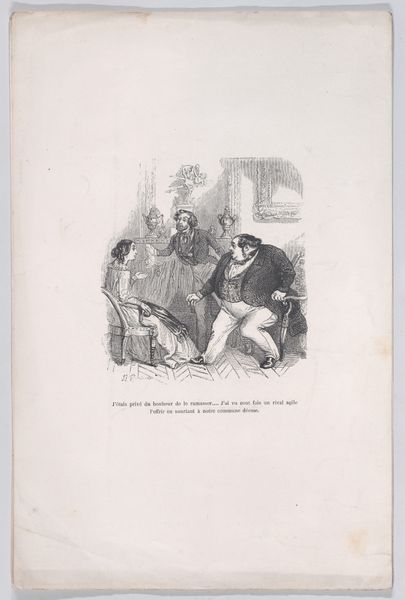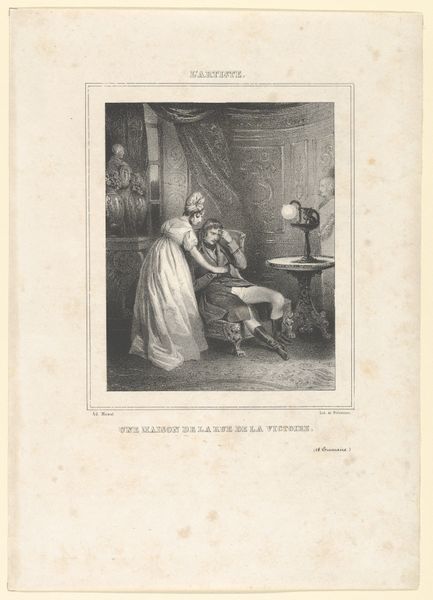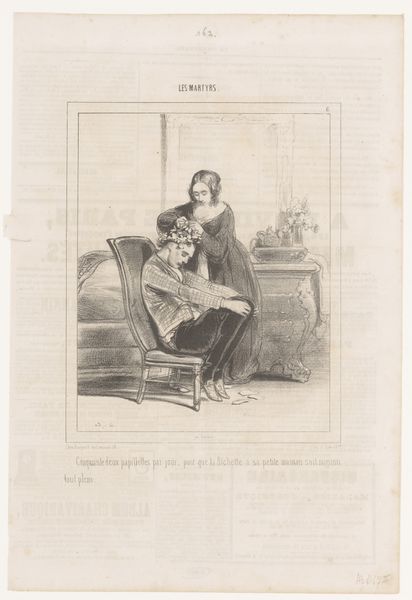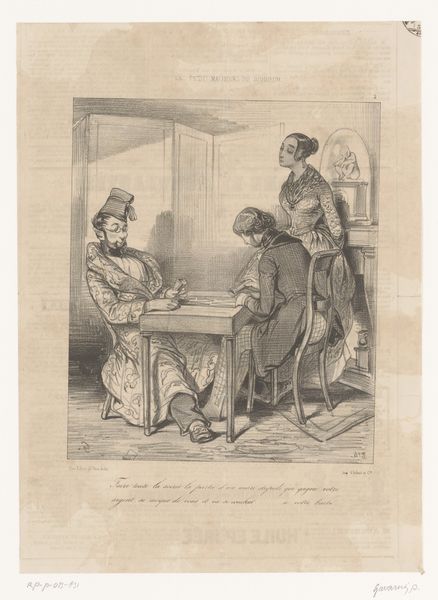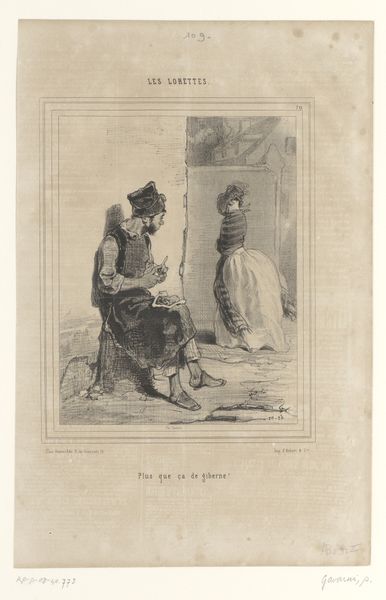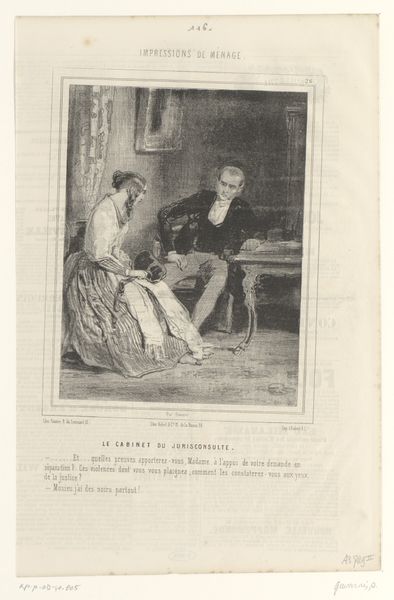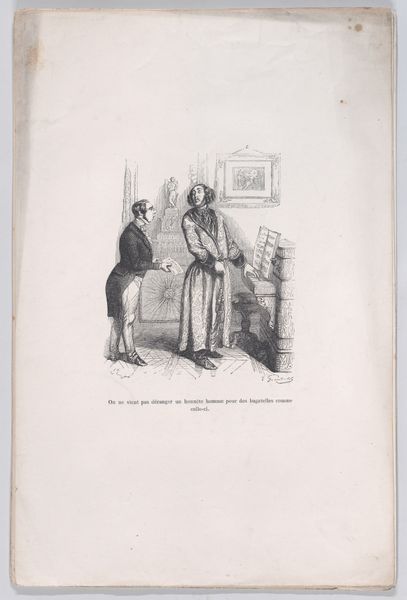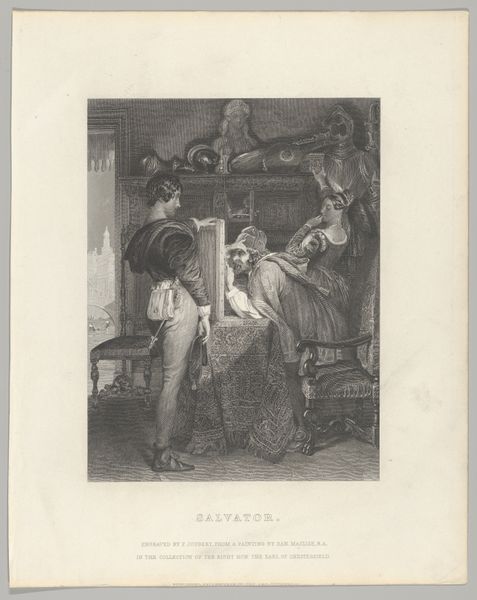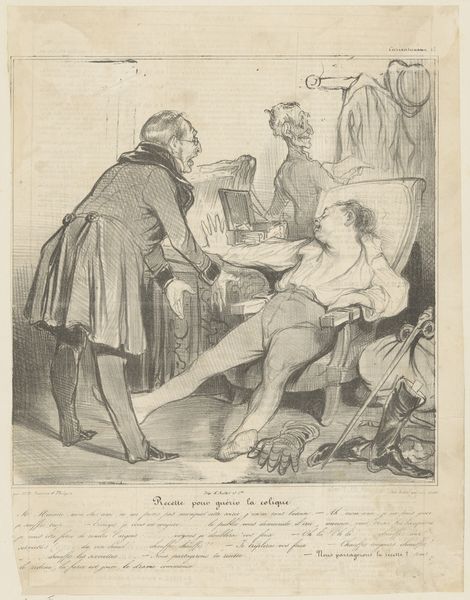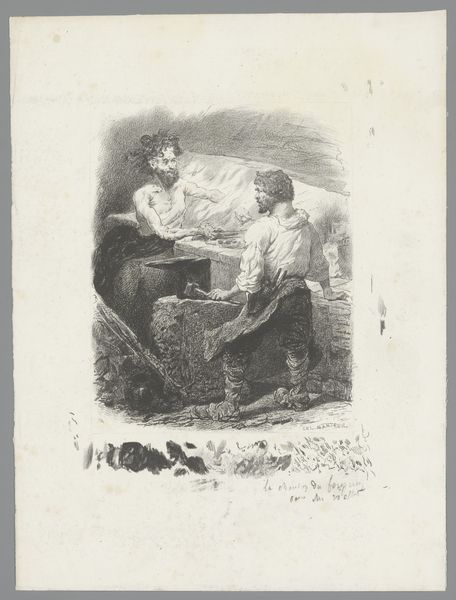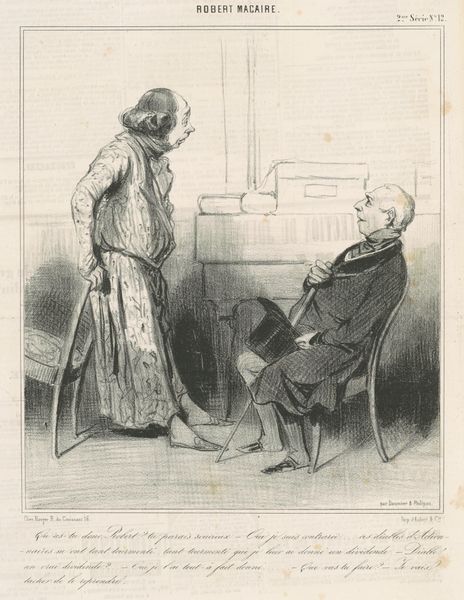
lithograph, print
#
lithograph
# print
#
caricature
#
figuration
#
form
#
19th century
#
line
#
genre-painting
#
realism
Dimensions: image: 8 11/16 x 7 in. (22.07 x 17.78 cm)
Copyright: National Gallery of Art: CC0 1.0
Editor: Here we have Honoré Daumier's lithograph from the 19th century, "Un neveu qui gagne cruellement une succession," which translates to "A nephew who cruelly wins a succession." There's a definite sense of discomfort radiating from the scene, particularly in the body language of the figures. How do you interpret this work within its historical context? Curator: It’s impossible to look at Daumier’s work without considering the rapidly shifting social landscape of 19th-century France. This lithograph, like many of his prints, served as pointed social commentary. Think about the burgeoning bourgeoisie and the anxieties surrounding inheritance. What do you see in the expressions and interactions between the characters? How does Daumier use caricature to convey meaning? Editor: The nephew looks almost predatory, perched there with that unsettlingly docile dog on his lap. And the woman – perhaps the aunt – seems distressed, clutching what I assume is the will. It feels like Daumier is critiquing the ways family dynamics are corrupted by wealth and greed. Curator: Precisely! And consider this image as part of a larger critique of power structures. Daumier often used his art to challenge the status quo, giving a voice to the marginalized and exposing the hypocrisy of the elite. The composition, the unflinching realism in his lines, the very title – all contribute to this subversive message. Is he just mocking these characters or suggesting something larger? Editor: It's both specific and universal, I think. It's about this particular family, but also about the corrosive effect of inheritance on human relationships more generally. It makes you think about how societal systems reward some at the expense of others. Curator: Absolutely. And seeing those connections, drawing parallels between the 19th century and today, is crucial to understanding the continued relevance and power of Daumier's art. It invites us to question what has changed, and more importantly, what hasn't. Editor: I never would have considered the systemic critique just from a glance!
Comments
No comments
Be the first to comment and join the conversation on the ultimate creative platform.
